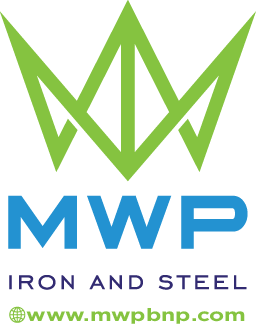Steel Manufacturing Options
In the ever-evolving landscape of steel manufacturing, making informed decisions about the processes, techniques, and materials you choose can significantly impact the quality, cost-effectiveness, and environmental footprint of your steel production. At Pakistan Steel, we take pride in our expertise in steel manufacturing, and we’re here to guide you through the diverse options available in the industry. In this comprehensive guide, we’ll delve deep into the various steel manufacturing options, shedding light on the intricacies that can help you optimize your steel production processes.
Introduction to Steel Manufacturing
Steel is the backbone of modern civilization, playing a pivotal role in construction, transportation, and numerous other industries. As such, it’s essential to have a solid understanding of the different manufacturing options at your disposal. Let’s explore them in detail:
1. Traditional Blast Furnace
The traditional blast furnace method has been the cornerstone of steel production for centuries. It involves melting iron ore, limestone, and coke (a carbon-rich material) in a furnace. While this process is energy-intensive and produces significant emissions, it remains a viable option for large-scale steel production due to its cost-effectiveness.
2. Electric Arc Furnace (EAF)
EAF steel manufacturing has gained popularity due to its lower environmental impact and flexibility. In this method, scrap steel is melted using electricity, reducing the reliance on raw materials. EAF is highly efficient for recycling steel and is often used for producing specialty and high-quality steel alloys.
3. Mini-Mill Production
Mini-mills are known for their efficiency and reduced environmental footprint. They utilize EAF technology and focus on recycling scrap metal to create new steel products. Mini-mills are particularly suitable for producing small quantities of specialized steel grades.
4. Direct Reduction
Direct reduction is an innovative approach that involves using natural gas or hydrogen to reduce iron ore into a sponge iron intermediate. This method reduces greenhouse gas emissions and is considered a more sustainable option.
Choosing the Right Steel Manufacturing Option
Selecting the ideal steel manufacturing method for your business requires a careful evaluation of several factors:
1. Production Scale
Consider the scale of your steel production. For large-scale operations, traditional blast furnaces may be cost-effective, while mini-mills or EAF methods are better suited for smaller production quantities.
2. Quality Requirements
Different manufacturing methods yield varying steel quality. Determine the quality standards required for your specific applications and choose a method that aligns with those standards.
3. Environmental Impact
Today, environmental responsibility is a crucial aspect of steel manufacturing. Assess the environmental impact of each method, and opt for those with lower emissions and reduced resource consumption if sustainability is a priority.
4. Cost Efficiency
Budget constraints are always a consideration. Evaluate the cost-effectiveness of each method, factoring in operational expenses, raw material costs, and energy consumption.
5. Market Demand
Stay attuned to market demands and trends. Certain steel grades and production methods may be more in demand, affecting your choice of manufacturing process.
Advancements in Steel Manufacturing
The steel industry continually evolves with technological advancements. Some recent developments that are shaping the future of steel manufacturing include:
1. Industry 4.0 Integration
Embracing Industry 4.0 technologies like automation, data analytics, and the Internet of Things (IoT) can enhance the efficiency and productivity of steel manufacturing processes.
2. Green Steel Initiatives
Many companies are investing in research to develop innovative, low-carbon steel production methods to meet sustainability goals and reduce environmental impact.
3. Alloy Innovation
Ongoing research in metallurgy leads to the development of new steel alloys with enhanced properties, expanding the possibilities for various industries.
Conclusion
Navigating the vast landscape of steel manufacturing options can be daunting, but it’s crucial to make informed decisions that align with your business goals and values. Whether you opt for traditional methods, embrace environmentally friendly approaches, or invest in the latest technological advancements, your choice can significantly impact your competitiveness in the industry.
At Pakistan Steel, we are dedicated to providing expert guidance and solutions tailored to your steel manufacturing needs. Contact us today to explore how we can help you optimize your steel production processes and stay at the forefront of the ever-evolving steel industry.
Why Partnering with a Specialized Alloy Distributor Delivers Value
